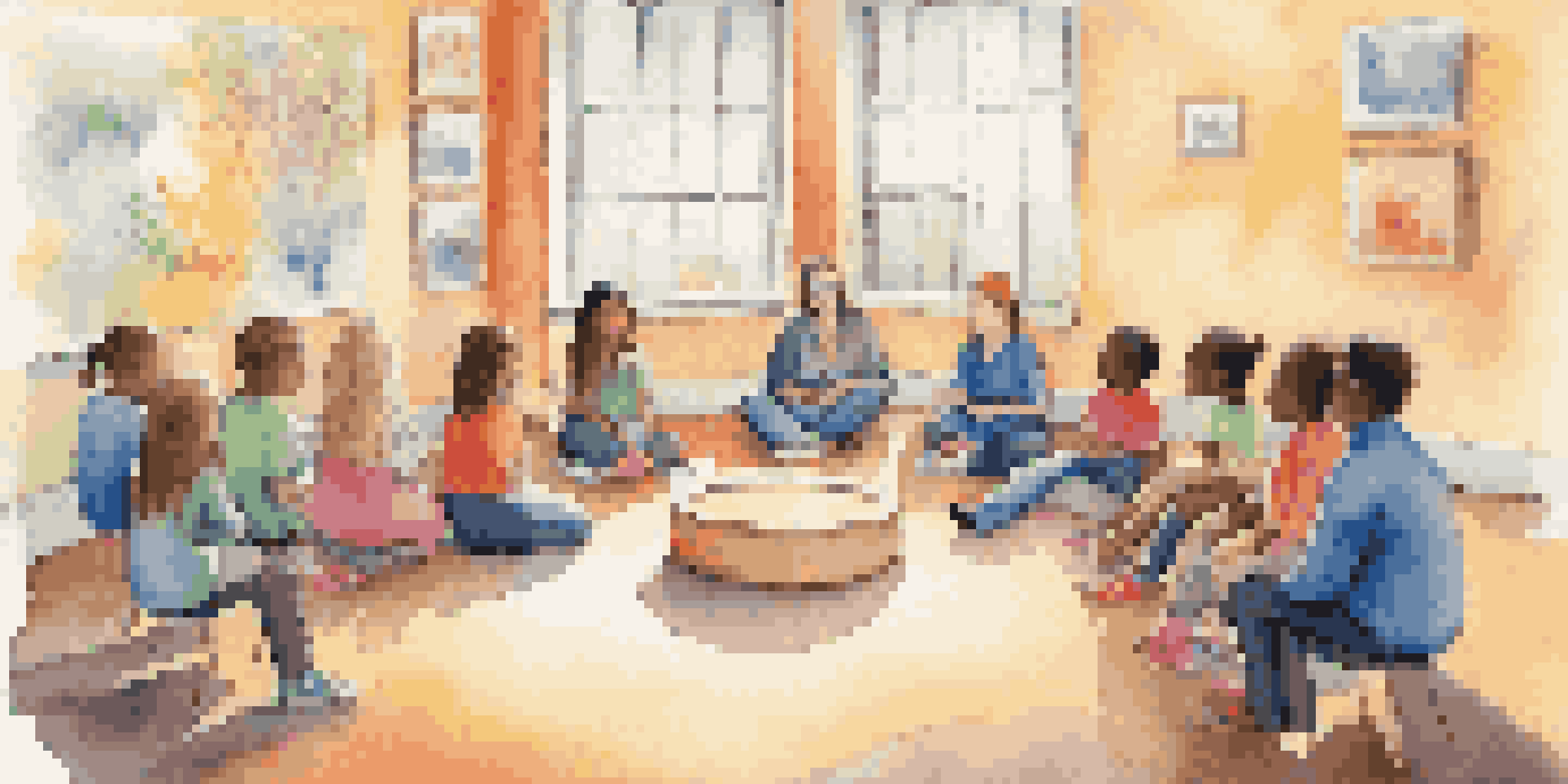Youth Mental Health: Understanding the Impact of Divorce

Understanding the Emotional Toll of Divorce on Youth
Divorce can be a seismic event in a child's life, shaking their emotional foundation. Children often feel a sense of loss, confusion, and even anger as their family dynamics change. This emotional upheaval can manifest as anxiety or depression, making it crucial to recognize these feelings early on.
Divorce isn't such a tragedy. A tragedy's staying in an unhappy marriage.
When parents divorce, children may struggle with feelings of abandonment or guilt, believing they somehow contributed to the split. It's important to validate these emotions while reassuring them that the divorce is not their fault. This understanding can help them process their feelings more healthily.
Moreover, the emotional impact of divorce often lingers, affecting children's relationships with peers and even their academic performance. Parents should remain vigilant and supportive during this transition, facilitating open conversations about feelings and fears.
The Role of Communication in Mitigating Effects
Open communication is key in helping children navigate the complexities of divorce. Encouraging honest dialogues can provide children with a safe space to express their feelings and concerns. This openness fosters trust and can help alleviate feelings of isolation during a tumultuous time.

Parents should aim to communicate not just with their children but also with each other, setting a unified front. When kids see their parents cooperating, it can ease their anxiety and reassure them that they are still loved. Collaborative co-parenting can significantly reduce stress for children, leading to better emotional outcomes.
Emotional Effects of Divorce on Kids
Divorce can lead to feelings of loss, confusion, and anger in children, making it essential for parents to address these emotions.
Additionally, using age-appropriate language can help children understand the changes without overwhelming them. For instance, younger children may benefit from simple explanations, while older kids might appreciate more detailed conversations about the family’s new structure.
Identifying Signs of Distress in Youth
Recognizing the signs of distress in children post-divorce can be challenging but vital. Common indicators include changes in behavior, such as increased irritability, withdrawal from friends, or sudden drops in academic performance. Parents should be observant and proactive in addressing these issues.
The greatest gift you can give your children is your time.
Physical symptoms may also arise, including headaches or stomachaches, which often have emotional roots. It's essential to approach these signs with empathy, encouraging children to talk about what they're feeling. This can help them realize that their emotions are valid and worthy of discussion.
Moreover, seeking professional help can be beneficial if distress signs persist. Therapists specializing in child psychology can equip children with coping strategies and tools to manage their feelings effectively.
The Importance of Routine and Stability
In times of upheaval, maintaining a sense of routine can provide comfort to children. Establishing predictable daily schedules can help kids feel more secure, as they know what to expect in their day-to-day lives. This structure can be especially beneficial in the aftermath of a divorce.
Having a consistent routine allows children to focus on their personal activities, whether that's school, sports, or hobbies. Engaging in these activities can serve as a distraction from their worries and also foster a sense of accomplishment. Parents should encourage their children to participate in these positive outlets.
Communication Eases Child Distress
Open communication between parents and children fosters trust and helps kids express their feelings during the challenging transition of divorce.
Additionally, stability extends beyond daily routines; it also involves nurturing stable relationships with both parents. Ensuring that children spend quality time with each parent can reinforce their sense of belonging and security, ultimately aiding in their emotional recovery.
Coping Strategies for Youth Dealing with Divorce
Teaching children effective coping strategies can empower them to handle their emotions healthily. Techniques such as journaling, art, or physical activity can provide constructive outlets for their feelings. Encouraging self-expression helps them process their experiences and fosters emotional resilience.
Mindfulness practices, like deep breathing or meditation, can also be beneficial for managing anxiety. These techniques teach children to focus on the present moment, reducing overwhelming feelings of worry about the future. Simple mindfulness exercises can be easily incorporated into their daily routines.
Moreover, fostering a strong support network is crucial. Encouraging friendships and family connections can provide children with additional emotional support. Knowing they are not alone in their experiences can significantly alleviate feelings of loneliness and despair.
The Impact of Divorce on Academic Performance
Divorce can have a noticeable impact on a child's academic performance, often leading to decreased concentration and motivation. The emotional turmoil they experience may distract them from their studies, resulting in lower grades or disengagement from school activities. Parents should be aware of these potential shifts and respond proactively.
Creating a supportive homework environment can help children refocus on their education. This might involve setting aside a specific time for homework or providing assistance when needed. A stable and encouraging home environment can make a significant difference in a child's academic success during challenging times.
Coping Strategies for Emotional Health
Teaching children coping strategies like mindfulness and self-expression can empower them to manage their emotions healthily amid divorce.
Additionally, communicating with teachers can be beneficial. Informing educators about the family situation allows them to provide additional support or accommodations. This collaboration can help ensure that children continue to thrive academically, even amidst personal challenges.
Seeking Professional Help for Youth
When the effects of divorce become overwhelming, seeking professional help is a wise step. Therapists and counselors trained in child psychology can provide tailored strategies to help children cope with their feelings. This professional support can make a significant difference in how children process their experiences.
Therapy can also serve as a safe space for children to explore their emotions without fear of judgment. Engaging in individual or group therapy can help normalize their feelings and foster connections with peers experiencing similar challenges. This shared understanding can be incredibly comforting.

Moreover, parents should not hesitate to seek guidance for themselves as well. Understanding how to support their children effectively is crucial, and professional advice can provide valuable tools and resources for navigating this complex family dynamic.